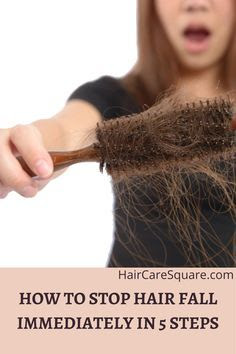7 Hairfall Myths That Cosmetologists Want You to Know
Hairfall and hair problems are some of the most common
complaints cosmetologists hear from their clients, but many of these concerns
are unwarranted. To clear up some misconceptions, here are the top 7 myths
about hair fall and why they’re not true.
Myth #1: Hairfall is natural
Hair loss, or hair fall, is an all too common problem that
affects as many as two out of every three people throughout their
lifetime. While it may seem logical to believe that hair loss is natural and
therefore unavoidable, nothing could be further from the truth. Our hair falls
out due to several factors beyond our control, like age and genetics, but those within our control are preventable. By protecting your hair from breakage
with healthy lifestyle choices and the use of protective styles like braids,
weaves, or natural loss you can maintain healthy hair for longer periods. Let’s
debunk 7 myths about natural hair loss:
Myth #1: Hair Fall Is Natural

1) Get enough sleep - missing out on even just two hours can
lead to an increase in cortisol levels, which leads to a reduction in blood
flow and protein production.
2) Exercise regularly - when you exercise your body releases
endorphins which reduce stress levels and raise your mood as well as hormones
like testosterone which build muscle mass and grow facial hair.
Myth #3: Shampoos Designed For Men are Effective
Shampoos designed for men may be marketed as treatments for hair fall, but they are not the best choice. If a woman is looking for a product that will help manage her hair fall and protect her scalp from damage, these shampoos will often disappoint.
Myth #4: Hereditary Is To Blame For Hair Fall
Hair fall and hair loss can be attributed to many reasons.
These may range from hormones and family genetics to other medical conditions,
or physical factors like scalp injury. Another common myth that people think is
the cause of hair fall is hair care and cosmetology techniques. However, it's
not just how you treat your hair that affects whether you lose your locks - it
is also important to keep your scalp clean, healthy, and moisturized by using
natural products made with tea tree oil which is one of the best essential oils
for preventing breakage and controlling hair fallout. Additionally, never try
harsh chemicals such as peroxide or dye at home if they are not provided by a
professional because they can make the situation worse!
Myth #5: Dandruff Affects Both Sexes Equally
Shamefully, people with dandruff are usually the last to
find out about it. This is because most of the time people will only notice
when flakes fall on their shirt or their shoulders. Men, for example, would
rarely see dandruff flakes and would only be able to identify them as dandruff
if they ever bothered to take a good look at the scalp during a haircut. On the other hand, women might notice changes in the texture and shine of their hair before noticing anything else wrong. Ultimately this is why we say
that women are better off than men when it comes to dealing with hair
fall-related problems like dandruff--they're more aware of what's happening
around them since they're constantly using mirrors and looking in shop windows!
Myth #6: Hormonal Imbalance Will Cause Excessive Shedding
Excessive shedding is a common symptom of hormonal
imbalance, which can be caused by any number of things. In many cases, it's the
result of polycystic ovarian syndrome or low thyroid function. Hormonal
imbalance can also be caused by something as simple as an eating disorder or
stress.
This myth is false because hormones do not cause shedding. Other factors lead to excessive shedding and therefore this myth is incorrect.
Myth #7: Many Factors Can be Responsible for Hair Fall
The truth is that many factors can be responsible for hair
fall. And, the condition can be hard to diagnose because it is so variable from
person to person. Some of the most common causes are poor nutrition and stress,
which can lead to a deficiency in essential nutrients and the overproduction of
cortisol. Other possible factors include thyroid disorders, hormonal
imbalances, medications, heredity, scalp infections, and skin conditions such as
psoriasis or eczema.













